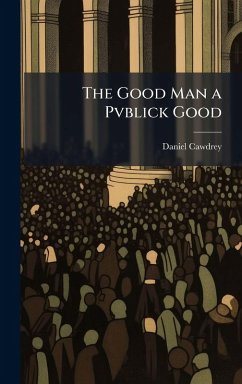The Good Man a Pvblick Good, by Daniel Cawdrey, is a transcribed sermon delivered to the House of Commons on January 31, 1643. This powerful sermon explores the role of the individual in contributing to the public good, both passively and actively. Cawdrey's work offers a valuable insight into the political and religious climate of 17th-century England during a period of significant upheaval. This historical document provides a window into the moral and ethical considerations of the time, reflecting the Puritan values prevalent in the House of Commons. Cawdrey's eloquent discourse on civic duty and personal responsibility remains relevant, offering timeless lessons on the importance of individual action in shaping society. This edition allows modern readers to engage with a pivotal moment in English history and appreciate the enduring power of persuasive oratory. This work has been selected by scholars as being culturally important, and is part of the knowledge base of civilization as we know it. This work was reproduced from the original artifact, and remains as true to the original work as possible. Therefore, you will see the original copyright references, library stamps (as most of these works have been housed in our most important libraries around the world), and other notations in the work. This work is in the public domain in the United States of America, and possibly other nations. Within the United States, you may freely copy and distribute this work, as no entity (individual or corporate) has a copyright on the body of the work. As a reproduction of a historical artifact, this work may contain missing or blurred pages, poor pictures, errant marks, etc. Scholars believe, and we concur, that this work is important enough to be preserved, reproduced, and made generally available to the public. We appreciate your support of the preservation process, and thank you for being an important part of keeping this knowledge alive and relevant.
Bitte wählen Sie Ihr Anliegen aus.
Rechnungen
Retourenschein anfordern
Bestellstatus
Storno

